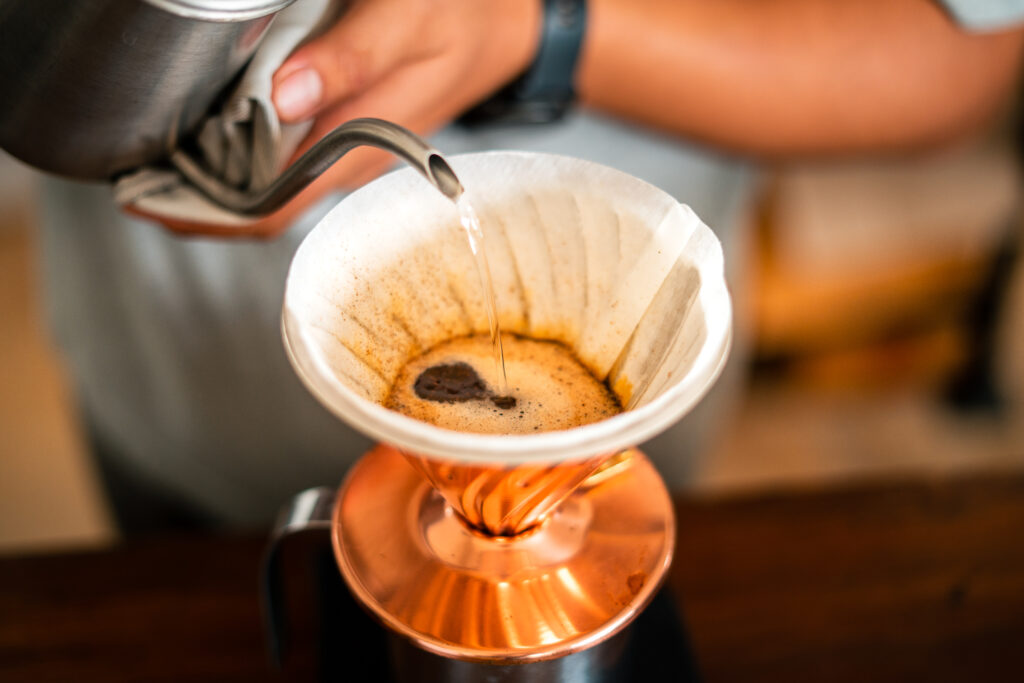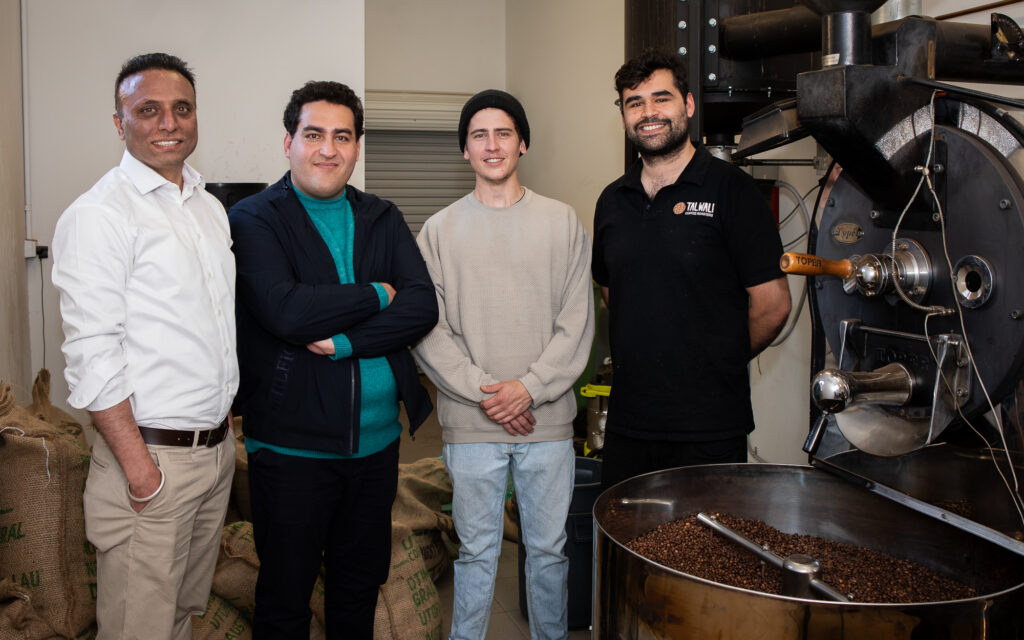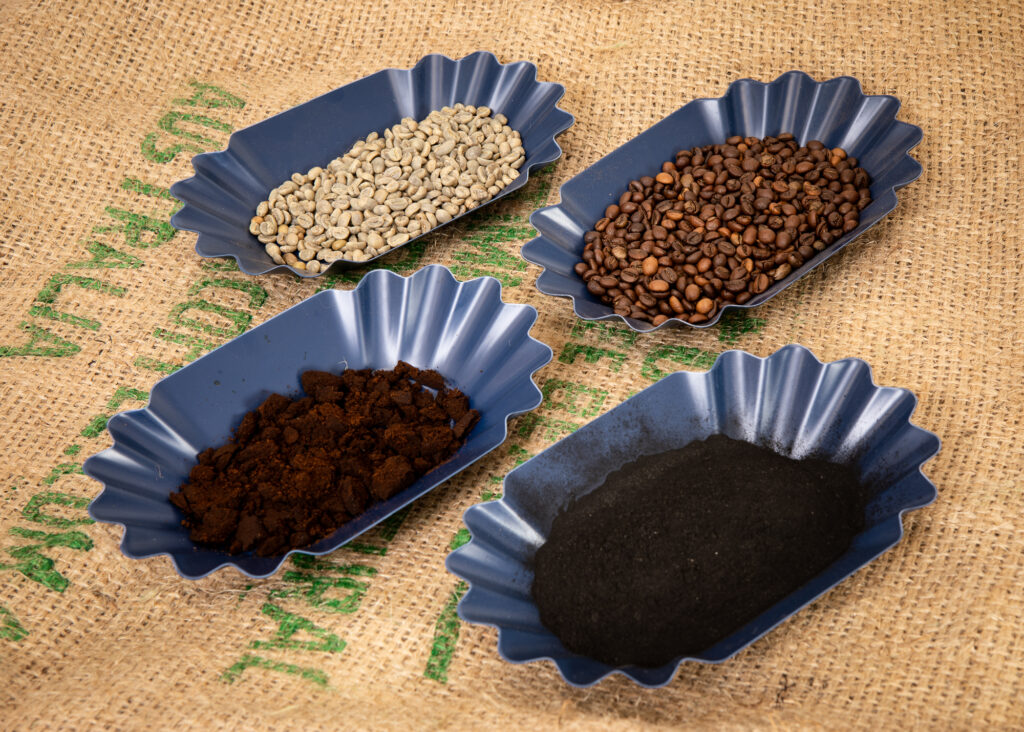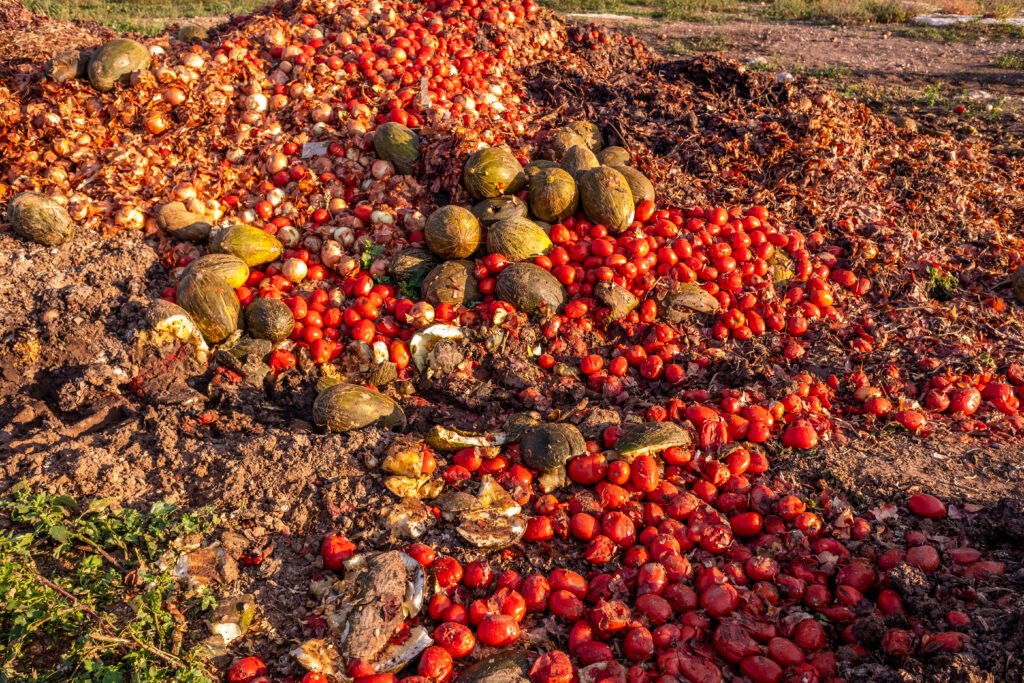Rebuilding The Planet One Cup At A Time: Turning Used Coffee Grounds Into A Foundation For The Future
How a team of RMIT researchers in Australia are repurposing spent coffee grounds into a stronger, more sustainable concrete
25 January 2024
Share this exclusive content from Saladplate

Photo Caption: A fresh batch of Talwali roasted coffee beans | Photo credit: Carelle Mulawa-Richards, RMIT University
With over 2.25 billion cups of coffee consumed daily on a global scale, a team of researchers out of the Royal Melbourne Institute of Technology (RMIT) in Australia is on a mission to reduce the carbon footprint of ground coffee beans while also making the production of concrete more Earth-friendly.
For context, concrete is among the world’s most unsustainable construction materials. Also, globally, the construction sector consumes 50% of all natural resources and 40% of energy and generates 50% of all waste.
The coffee-to-concrete solution may provide a small respite to these staggering figures.

Photo Credit: Envato Elements
The Problem With Coffee Grounds
As a result of the world’s voracious appetite for coffee, a staggering 18 million tonnes of coffee grounds end up in landfills each year — and here is where the problems begin. When organic waste decomposes, it releases the greenhouse gases carbon dioxide and, more worryingly, methane into an already-congested atmosphere. To put that into perspective, 18 million tonnes of coffee grounds would release over 2.3 billion cubic metres of methane annually – which is equivalent to the entire annual CO2 output of a country the size of France.
“There is a huge amount of organic waste finding its way into landfills. In Australia alone, organic waste broken down in landfills account for about 3% of the nation’s total greenhouse gas emissions,” explains RMIT’s Dr Rajeev Roychand, a sustainability-centric material scientist and structure design engineer. It is precisely for this reason that the Australian government has invested heavily in finding recyclable solutions for waste materials, which nudged the research team in the direction where they discovered an ingenious method to repurpose coffee grounds.

Photo Caption: RMIT University researchers Dr Rajeev Roychand, Dr Mohammad Saberian and Dr Shannon Kilmartin-Lynch with Jordan Carter, Co-founder of the Indigenous-owned Talwali Coffee Roasters (pictured left to right) | Photo credit: Carelle Mulawa-Richards, RMIT University
The “Eureka” Moment
While exploring high-value products that might be created out of organic waste, the team gathered over a fateful cup of coffee and witnessed a colleague dump out their used coffee grounds into the bin and an idea was formed. This soon turned into a two-pronged green solution for both the F&B and the construction industries.
With a background as a structural design engineer, Dr Rajeev was already fully aware of the environmental impact of concrete production. Cement, the binding agent within concrete, produces a huge amount of carbon dioxide in its production. Concrete itself also requires other components such as gravel and sand, both of which are available in limited quantities and must be continuously mined, treated and transported – consuming an exorbitant amount of energy and raw materials.
If only there was a way to reduce the use of these materials in creating concrete.

Photo Caption: Mining for sand and gravel has a detrimental and long-term impact on global warming. | Photo credit: Envato Elements
The science behind “biochar”
In short, Dr Rajeev’s research team developed a patented process in which they produce “biochar” out of coffee grounds through pyrolysis – a method of heating materials in the absence of oxygen. Biochar, when used as a replacement for sand, creates a concrete of significantly higher strength of up to 30% stronger. This can be leveraged to reduce the amount of cement and sand needed.


Samples of unroasted coffee beans, roasted coffee beans, spent ground coffee and the team’s coffee biochar. | Photo credit: Carelle Mulawa-Richards, RMIT University
Photo Credit: Envato Elements
The world takes notice
The moment the team’s research went public, they received the validation they sought as global interest started pouring in. Starbucks’s global headquarters in the USA got in touch with the team, seeking a greener future; war-torn Ukraine has also been in touch, keen to leverage this research when the time comes to rebuild the nation. A big Australian chain of coffee roasteries, whose identity is currently behind an NDA, has also expressed keen interest as they are about to set up a new nationwide venture; and the team has also garnered interest from investors from the USA, Australia and India. Locally, contracts have already been signed with one Australian council and a construction company, according to Dr Rajeev.
To turn this research into a practical concrete reality, the team is currently working closely with RMIT’s Intellectual Property (IP) team to set up a start-up company that will be able to take these interests forward.
Beyond coffee grounds
Although limited to coffee grounds for now, the implications of Dr Rajeev’s research can have far-reaching consequences in the fight for sustainable consumption. Biochar can be created from any organic waste – and the commercial kitchens of the world are next in the team’s crosshairs. A restaurant can produce up to 34,000kg of food waste each year and in the USA, restaurants waste 4% to 10% of ingredients purchased, and 30% to 40% of the food they serve to customers finds its way into a landfill.

Photo Caption: Food waste in landfills decomposes to release greenhouse gases carbon dioxide and methane. | Photo credit: Envato Elements
The challenge here, though, is sorting out the waste. Different kinds of organic waste require different treatments to produce biochar but in the heat of the kitchen, food waste typically all goes into the same bin. To expect a commercial kitchen to sacrifice time and money to set aside the waste proteins from carbohydrates, for example, is simply impractical. Hence, the team is now working on a parallel research that would devise a catch-all method of turning any mixed organic waste into biochar, while producing other high-value byproducts from this process.
With field trials set for the next couple of months and the team’s start-up company on the brink of being finalised, it is an exciting time for the coffee industry, the construction sector, and indeed the green future of our planet.
Author: Julianna Hedger
Julianna is a seasoned content specialist who started her writing career in unscripted television production and broadcast news at FOX Sports Asia and the Associated Press. She has since added various writing skills to her repertoire, such as long-from articles, SEO-driven blogs and social media copywriting. She is driven by her personal passions in content creation, food and sports media.



